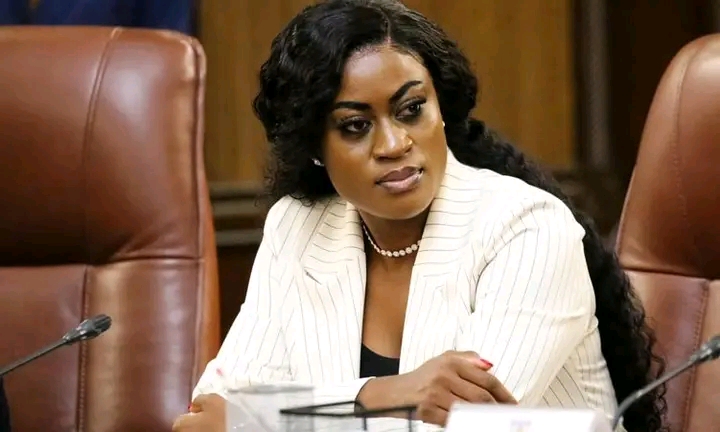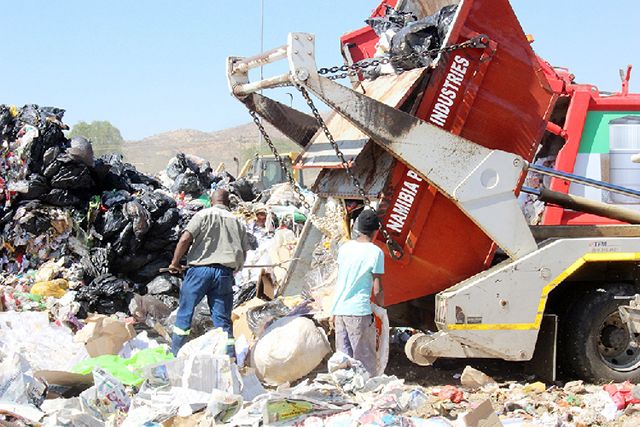NAMIBIA has been chosen as one of the few African countries which are eligible for a new development aid programme from the USA.
The project submission process started in April this year and will be completed next month. The Director General of the National Planning Commission (NPC), Helmut Angula, said that the amount to be funded is not yet known, but a special team of experts has taken up office in a TransNamib building to conclude the proposals.The Millennium Challenge Corporation (MCC) was established by US President George W Bush in 2004 to work in partnership with developing countries in order to reduce poverty and encourage sustainable economic growth.It is a new approach to development assistance that is based on the principle that aid is most effective when it reinforces good governance and sound political, economic, and social policies that promote poverty reduction through economic growth.”We have made N$7 million available for our team, which we put together with various experts from different ministries to hold consultations and draft the submissions,” Angula said yesterday when inaugurating the office.”The main themes for proposals collected through intensive consultations in all 13 regions are human capacity building, livestock, cash crops and the promotion of the use of indigenous food plants, tourism and aquaculture,” he said.Penny Akwenye, who heads the Namibian team, said civil society also had a say in the project formulation.Once the US Congress approved the funding, which could still be this year, an assessment team from the MCC head office in Washington would travel to Namibia.”If successful, we might sign the agreement next year in June and start implementation in August 2007, which then would run over five years,” Akwenye explained.Angula emphasised that the difference in the approach to development aid under the MCC was that it rested on the principle of project ownership of the beneficiary country.A delegation from the MCC visited Namibia earlier this year after the US Congress selected Namibia in November 2005.Other African countries chosen are Burkina Faso, Ghana, Lesotho and The Gambia.The MCC however withdrew its funding to The Gambia because of suspected corruption when the funds were allocated.The Director General of the National Planning Commission (NPC), Helmut Angula, said that the amount to be funded is not yet known, but a special team of experts has taken up office in a TransNamib building to conclude the proposals.The Millennium Challenge Corporation (MCC) was established by US President George W Bush in 2004 to work in partnership with developing countries in order to reduce poverty and encourage sustainable economic growth.It is a new approach to development assistance that is based on the principle that aid is most effective when it reinforces good governance and sound political, economic, and social policies that promote poverty reduction through economic growth.”We have made N$7 million available for our team, which we put together with various experts from different ministries to hold consultations and draft the submissions,” Angula said yesterday when inaugurating the office.”The main themes for proposals collected through intensive consultations in all 13 regions are human capacity building, livestock, cash crops and the promotion of the use of indigenous food plants, tourism and aquaculture,” he said.Penny Akwenye, who heads the Namibian team, said civil society also had a say in the project formulation.Once the US Congress approved the funding, which could still be this year, an assessment team from the MCC head office in Washington would travel to Namibia.”If successful, we might sign the agreement next year in June and start implementation in August 2007, which then would run over five years,” Akwenye explained.Angula emphasised that the difference in the approach to development aid under the MCC was that it rested on the principle of project ownership of the beneficiary country.A delegation from the MCC visited Namibia earlier this year after the US Congress selected Namibia in November 2005.Other African countries chosen are Burkina Faso, Ghana, Lesotho and The Gambia. The MCC however withdrew its funding to The Gambia because of suspected corruption when the funds were allocated.
Stay informed with The Namibian – your source for credible journalism. Get in-depth reporting and opinions for
only N$85 a month. Invest in journalism, invest in democracy –
Subscribe Now!










